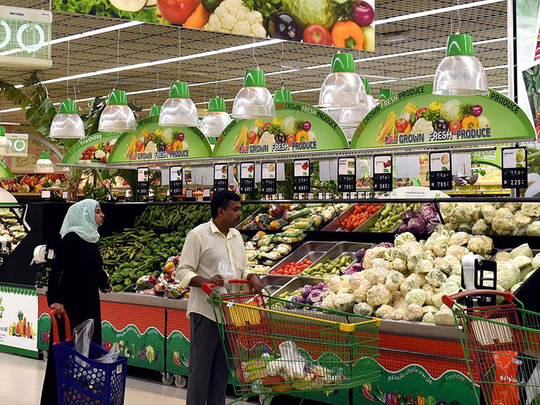
Dubai: All types of food in the UAE, including staples such as bread and rice, will be taxed from January 1, 2018, the Federal Tax Authority (FTA) told Gulf News on Wednesday morning.
The public has long-expected certain food staples to be zero-rated, or exempt, from the 5 per cent tax increase.
Zero-rated refers to the preferential status the government gives some essential goods and services, meaning their sale is not taxed.
Director-General of the FTA, Khalid Al Bustani, told Gulf News at a media event on Wednesday: “The law in the GCC agreement said that any food items would be under the sovereign right of the government to include it [as a zero-rated item]. The law that has been issued did not include it.”
The list Al Bustani referred to was issued at the end of August, and included goods and services such as public transport, commercial airlines, investment-grade precious metals, the supply of crude and natural gas, and education and health care.
Many of these goods aren’t taxed because they provide beneficial services to society, whilst others avoid tax simply because they are too complicated, such as financial services.
When Gulf News asked Al Bustani if food would be zero-rated, he responded: “No.”
Initially, an official from the FTA said, there was a list that was agreed on between the GCC member states, with each country choosing whether to zero-rate each item or not.
When asked if the UAE had chosen not to zero-rate food, they responded: “It is not on our list of zero-rated items.”
The official declined to be named as they were not authorised to talk to the press.
In 2015, the Gulf states announced that from 2018, they would introduce a 5 per cent tax on goods and services, commonly known as value added tax, or VAT, in order to bolster state revenues and continue along the path of rapid development and modernisation.
According to UAE government estimates in September, the taxes are forecast to generate around Dh7 billion in annual revenues for the Federal Budget.
In 2015, about 100 food items were initially announced by the Ministry of Finance to be zero-rated, leading to confusion among the public when this later changed.
At the time, Younis Al Khouri, undersecretary of the UAE’s Ministry of Finance, told Gulf News in an interview: “We have agreed to exempt some of the food [products] — approximately 94 items.”
Around a year and a half later, however, this does not appear to be the case any longer.












